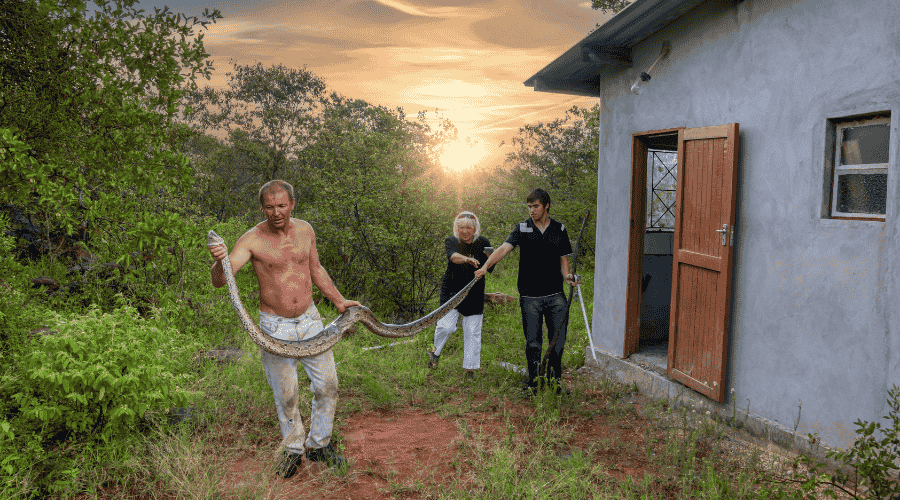
Professional trappers participating in the South Florida Water Management District (SFWMD) Python Removal Program have successfully captured and removed 10 Burmese pythons in the first 10 days of the initiative. The program, aimed at controlling the invasive species population in the Florida Everglades, continues to show promising results.
Success in the First 10 Days
The captured pythons measured a total of nearly 100 feet in length. Due to their natural camouflage and stealthy nature, spotting these snakes can be as challenging as finding “a moving needle in a haystack.” However, skilled hunters have already made significant progress.
The largest python, measuring 15 feet, 10 inches, was caught by Patrick Campbell on Sunday. His efforts earned him a $350 payment as part of the incentive-based program. Meanwhile, Barry Oppenburger has been the most successful hunter so far, capturing three pythons in the program’s first week.
Incentives for Python Hunters
The Python Removal Program employs 25 professional hunters who are tasked with patrolling the Everglades to locate and remove these invasive reptiles. Hunters are compensated as follows:
- $8.10 per hour for up to 8 hours a day.
- $50 for pythons under 4 feet and an additional $25 per foot for longer snakes.
- $100 bonus for removing a python nest with eggs.
This financial incentive encourages more experienced trappers to participate in the fight against the Burmese python, which has been devastating Florida’s native wildlife.
The Threat of Burmese Pythons in Florida
Burmese pythons are an invasive species that have severely impacted native wildlife in the Everglades. These snakes prey on mammals, birds, and even alligators, disrupting the local ecosystem. Since their introduction—most likely through the exotic pet trade—their population has exploded, making control efforts like the SFWMD Python Removal Program essential for conservation.
For more details on Florida’s ongoing efforts to manage invasive species, visit the Florida Fish and Wildlife Conservation Commission (FWC).




